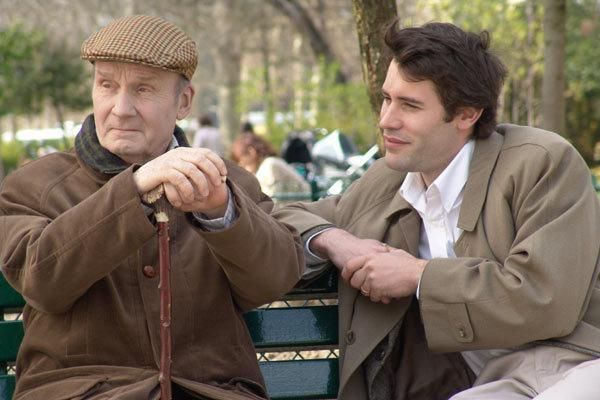Eye For Film >> Movies >> The Last Mitterand (2005) Film Review
The Last Mitterand
Reviewed by: Scott Macdonald

The Last Mitterand is based on the writing of Francois Mitterand's memoirs. It is an effective, yet cinematically dry, dramatisation of the recording of his thoughts with young journalist Antoine (Jalil Lespert). The old man is dying from prostate cancer and knows he doesn't have much time to impart his knowledge and final statements on his life. Using this framework, director Robert Guediguian reveals the brief history of the man, a leading French politician, defecting from the right to the left, and the man who made socialism electable twice.
Michel Bouquet delivers a revelatory, award-worthy performance as the amiable and mysterious French president. Such is the quality of his acting that we almost involuntarily lean forward to listen whenever he is on screen. His charm, his latent wit, those great eyes showing incredible charisma capture us, reflecting a sombre and educated, if deliberately elusive, self-conditioned memory.
It is a startling resurrection of a man who was deeply troubled by his non-acceptance by the people. He can never be a true socialist, since, in spite of coming from the working classes, benefits from the privilege of an exclusive salary and an army of human resources at his disposal. The film labours his struggle at being a member of the "champagne left" and a "blood-traitor" to the right.
"Tell them I'm not the Devil" is his ultimate command to Antoine.
The thread of the film reminds me, if only in intent, of Akira Kurosawa's great Ikiru. Mitterand and his memory stumble along the way, containing his illness with minimal complaint, although it's occasionally humbling for him to have to find meaning in his life.
Antoine learns to deal with the President's fugacious mannerisms, clamming up, or changing the subject when it comes to his early Vichy ministership, and many other aspects - his direct ordinate signed away the lives of thousands of French Jews to the Nazis early in World War II. Guediguian allows these threads to be cast aside through the wishes of his inspiration. Another allusion is phone tapping and illegal means of information gathering, including the Presidents' foreknowledge of Antoine's research trip, disguised as a visit to his mother.
There's a late scene in the cathedral, where the kings and presidents of France are laid to rest in marble likenesses. Mitterand casts aside his cane, deliberately, quietly sinking to his knees and then lying on the stone floor, looking up at France's history. An enigmatic smile spreads across his face, oh-so slowly.
Is he the great socialist pretender, taking his place amongst the regal, instead of the people? Or is he "the last of the great presidents"?
Reviewed on: 31 Jul 2005

















